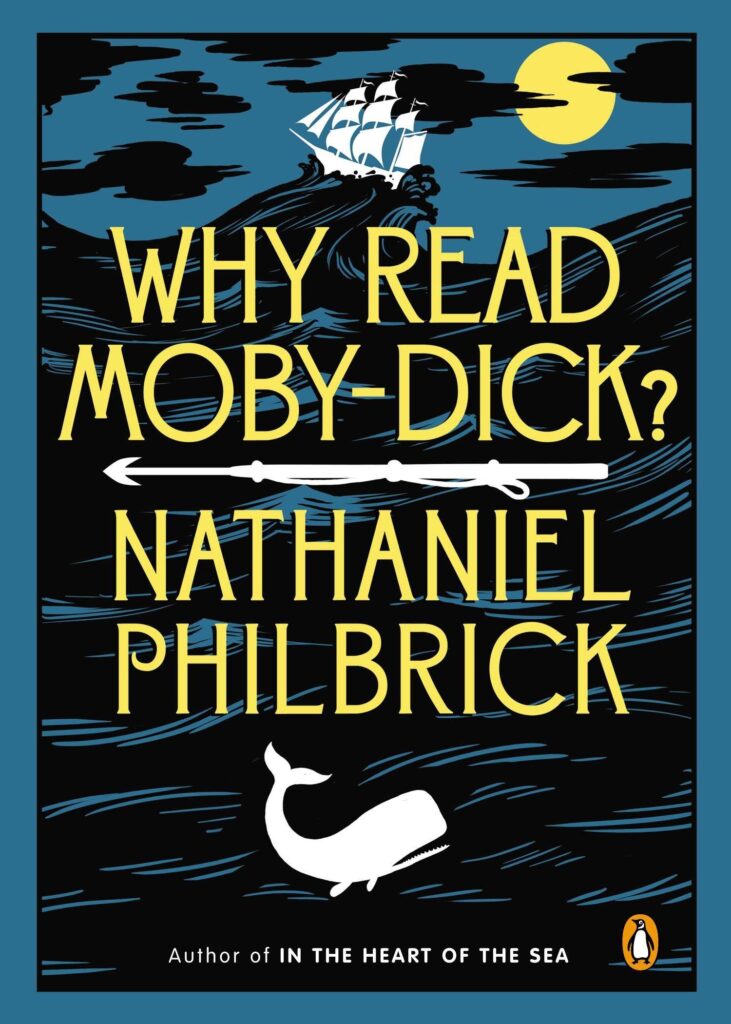
Bismarck, N.D. — I’m reading Herman Melville’s Moby Dick. I’ll be teaching it at one of my literary retreats come next January, but I wanted to read it anyway. It has been maybe fifteen years since I read it through. This is a matter of some shame to me. While I was scouring for something else this morning in my basement library, a true library of more than 10,000 books, I came upon the Melville section and found Nathaniel Philbrick’s short book, Why Read Moby-Dick? Perfect. I decided to read it today because there is no really pressing thing I have to do this afternoon. I thought it might be something I would recommend to the 25 people who have signed up for the winter retreat.
After just a few pages I came upon this:
“To write timelessly about the here and now, a writer must approach the present indirectly. The story has to be about more than it at first seems. Shakespeare used the historical sources of his plays as a scaffolding on which to construct detailed portraits of his own age. The interstices between the secondhand historical plots and Shakespeare’s startlingly original insights into Elizabethan England are what allow his work to speak to us today.”
First of all, interstices are nice. He means the gaps, the spaces between lines, as in grillwork.
But is this true? If it is true, I have completely failed to read Shakespeare correctly. I have read the plays under the assumption that Shakespeare was not looking for a mask behind which to try to make sense of his own age, but that he was, as a consummate entertainer, interested in trying to bring those stories to life. Of course, he was exploring human nature and the human condition by way of plots about a jealous Moor or a predatory government official, but I did not think Shakespeare was writing about Elizabethan England per se. You can say that classical ’50s Westerns in American film were about the Cold War, but is that what they are mostly about? I thought Dr. Strangelove, The Manchurian Candidate, and Fail Safe were about the Cold War and High Noon was about the frontier era of American history.
My sense is that Philbrick may have misstated his point somewhat. Honestly, I think I am closer to the intentions of Shakespeare than he is. But I know, too, that my education in Elizabethan and Jacobean literature came before Historicism and the New Historicism. Since I was never taught to wear that lens — essentially to investigate the ways in which literature is informed by, negotiates with, and reveals contemporary history — maybe I am just blind.
There is only one way to find out. I’m going to choose a play I don’t know well and read it with a historicist’s lens. Maybe it will suddenly make perfect sense to me. I am going to select Troilus and Cressida, written sometime around 1602, about the same time as Hamlet. I have read it maybe three times in my life and that was very long ago.
So, I’ll report back. First Moby Dick and then Troilus and Cressida. Two roads diverged in a wood. …
